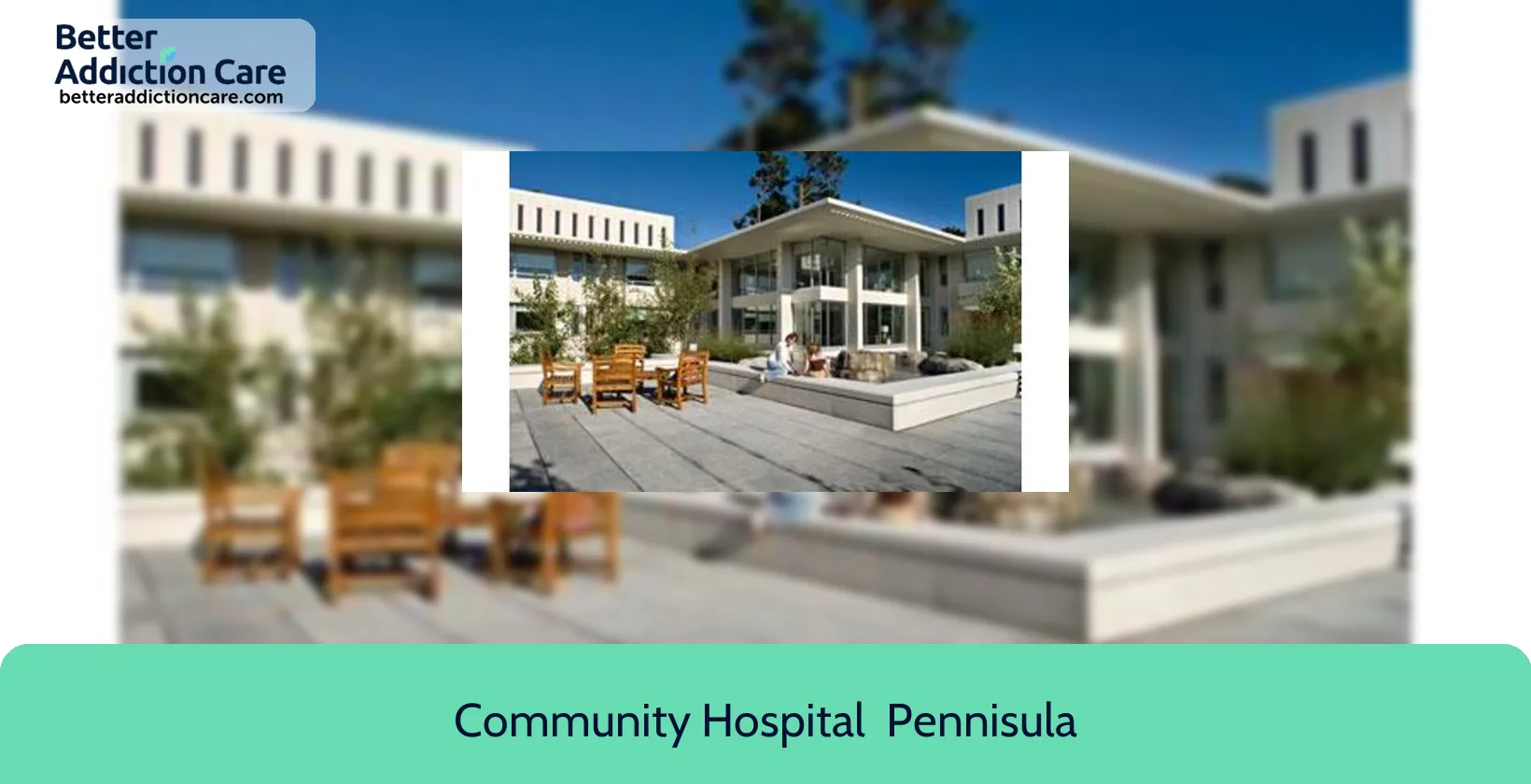Community Hospital - Pennisula
Overview
Community Hospital - Pennisula is an substance abuse treatment center that provides inpatient treatment for men and women from 18+ years of age. As part of their special programs, Community Hospital - Pennisula To help patients achieve sobriety, Community Hospital - Pennisula provides intake assessments. Afterward, patients receive electroconvulsive therapy, nicotine replacement, and group counseling during treatment. Community Hospital - Pennisula is located in Monterey, California, providing treatment for people in Monterey County, accepting county or local government funds, medicaid, and other state funds.
Community Hospital - Pennisula at a Glance
Payment Options
- County or local government funds
- Medicaid
- Other State funds
- Private health insurance
- Cash or self-payment
Assessments
- Comprehensive mental health assessment
- Comprehensive substance use assessment
Age Groups
- Adults
- Young adults
Operation
- Private for-profit organization
Highlights About Community Hospital - Pennisula
6.59/10
With an overall rating of 6.59/10, this facility has following balanced range of services. Alcohol Rehabilitation: 8.00/10, Drug Rehab and Detox: 6.00/10, Insurance and Payments: 6.00/10, Treatment Options: 6.36/10.-
Alcohol Rehabilitation 8.00
-
Treatment Options 6.36
-
Drug Rehab and Detox 6.00
-
Insurance and Payments 6.00
Treatment At Community Hospital - Pennisula
Treatment Conditions
- Mental health treatment
- Substance use treatment
- Co-occurring Disorders
Care Levels
- Hospital inpatient treatment
Treatment Modalities
- Electroconvulsive Therapy
- Nicotine replacement
- Group counseling
- Experiential Therapy

Additional Locations
Contact Information
Read our Most Recent Article About Drug Addiction
DISCLAIMER: The facility name, logo and brand are the property and registered trademarks of Community Hospital - Pennisula, and are being used for identification and informational purposes only. Use of these names, logos and brands shall not imply endorsement. BetterAddictionCare.com is not affiliated with or sponsored by Community Hospital - Pennisula.










